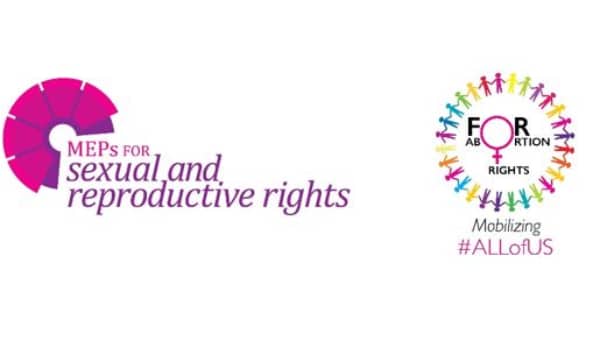
As Members of the European Parliament and representatives of MEPs for Sexual and Reproductive Rights and the pro-choice network ALL of US, we call on the newly elected President of the European Commission Ursula von der Leyen to protect and further strengthen gender equality and sexual and reproductive health and rights in the work programme for the European Commission 2019-2024.
… Gender equality is enshrined in the Charter of Fundamental Rights of the EU and the EU is further promoting gender equality outside of its borders. Attacks on women’s rights and gender equality are attacks on fundamental rights and values, including democracy and the rule of law. Conversely, everybody benefits from the positive effects of gender equality policies – socially, politically and economically. The value of gender equality is also close to the hearts of European citizens – according to a 2017 Eurobarometer survey, 91% of Europeans believe that promoting it is important to ensuring a fair and democratic society.
Around the world, every day about 830 women die from pregnancy or childbirth related complications; 214 million women want to prevent or postpone pregnancy, but do not have access to modern methods of contraception; around 25 million unsafe abortions are estimated to take place every year; more than 200 million girls and women have been forced to undergo female genital mutilation (FGM); four in ten women aged 20-24 in Sub-Saharan Africa were married before the age of 18; one in three women have experienced physical or sexual violence. Promoting and investing in sexual and reproductive health and rights (SRHR) saves lives, improves health and contributes to realising human rights.
SRHR underpin the health and well-being of all – from access to comprehensive relationship and sexuality education for all children, contraceptive and abortion care, sexual health services, to being protected from violence and coercion, regardless of their gender or sexual orientation. The ability to access these services is a key prerequisite to achieving gender equality. Unfortunately, access to SRHR varies greatly also within and between EU Member States, which is particularly harmful to those in the most vulnerable situations. At the same time, persisting gender inequalities are a key cause of the non-fulfilment of sexual and reproductive rights and must be addressed to eliminate dangerous and discriminatory healthcare practices and reproductive coercion.
Recent years have seen a rise of coercive movements both within and outside of the EU, with gender equality, women’s rights, LGBTI rights, and reproductive freedom increasingly under attack… They seek to overturn existing laws on basic human rights related to sexuality and reproduction, such as the right to divorce; access to modern forms of contraception; assisted reproduction technologies; access to stem-cell research; access to safe and legal abortion; equality for lesbian, gay, bisexual, transgender or intersex (LGBTI) persons.
Recent examples of these efforts include: 1. the 2015 European Citizens’ Initiative ONE OF US – an attempt to stigmatize abortion by focusing on funding; 2. the 2016 proposed bill for a complete ban on abortion in Poland; 3. campaigns against the ratification of the Council of Europe Convention onpreventing and combating violence against women and domestic violence across Europe which have led to Bulgaria and Slovakia rejecting its ratification; 4. the ban on Gender Equality studies from Hungarian universities in 2018 by the Orban government.
In order to counter further attempts to restrict reproductive freedom and gender equality, we urge Ursula von der Leyen, the new President of the European Commission, to include the following objectives in the work programme for the European Commission 2019-2024:
- Adopt a binding EU Strategy for Gender Equality and an LGBTI strategy and work towards the eradication of gender inequality and violence against women and gender-based violence and ensure that standards needed to achieve this are put in place.
- Safeguard the right of all Europeans to live free and safe reproductive lives without discrimination and include the promotion and improvement of sexual and reproductive health and rights in the next EU’s Public Health Strategy…
and three other recommendations on regressive discourse, investing EU resources to address harmful social norms, and provide political and financial support to women’s rights groups and human rights defenders, particularly those working in challenging contexts in Europe…
35 signatories
FULL STATEMENT AND LIST OF SIGNATORIES, Strasbourg, 16 July 2019
From: European Parliamentary Forum for Sexual & Reproductive Rights, 18 July 2019



